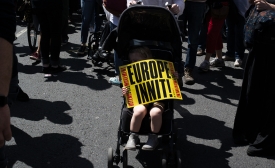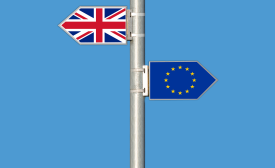european union

An analysis of the Brexit vote, Part 2.
The lopsided reality of Britain’s relationship with the United States was underlined at the White House this week when it was asked to react to findings from the official UK report into the Iraq war. [...] “The United States and the United Kingdom have a special relationship,” he said. “I would expect that that relationship will remain special and strong.” For British diplomats – worried more than ever about their access to power after Barack Obama’s dire warnings over Brexit – such platitudes might sound reassuring.
Britain pledged 100 million pounds ($130 million) on Thursday to help educate girls in the world's poorest countries in a move described by International Development Secretary Justine Greening as a post-Brexit bridge to the world. [...] Greening described the pledge as one of the "best bargains" in development investment the British government could make, saying it would build bridges with "trading partners of the future", particularly in a post-Brexit world.
Sport has become an essential tool in the European Union’s soft power approach. Over the past few years, the political vision promoting economic development through sport has become a standard practice in Europe’s policies of solidarity and sustainable development. Yet, how can the European experience help improve the Olympic ideal of using sport to promote peace and prosperity?

Nicholas Cull puts the Brexit in a PD context.
The flags of the member states of the European Union flutter outside EU institutions, recent beehives of activity as top officials gathered from around the continent to respond to Britain’s momentous choice to leave the bloc behind. [...] And now it’s up to EU leaders to recalibrate and stop a further breakup, not only by delivering concrete results to citizens, like jobs, but also by making sure their case for unity is heard over the storm of criticism coming from Euroskeptics poised to take advantage at a turning point.
Experts say that it will take at least two years for formalities following Brexit to finally be in place. Given this scenario, will UK see a further drop in the number of students from India and will UK universities introduce more stringent policies for international students, particularly Indians?







